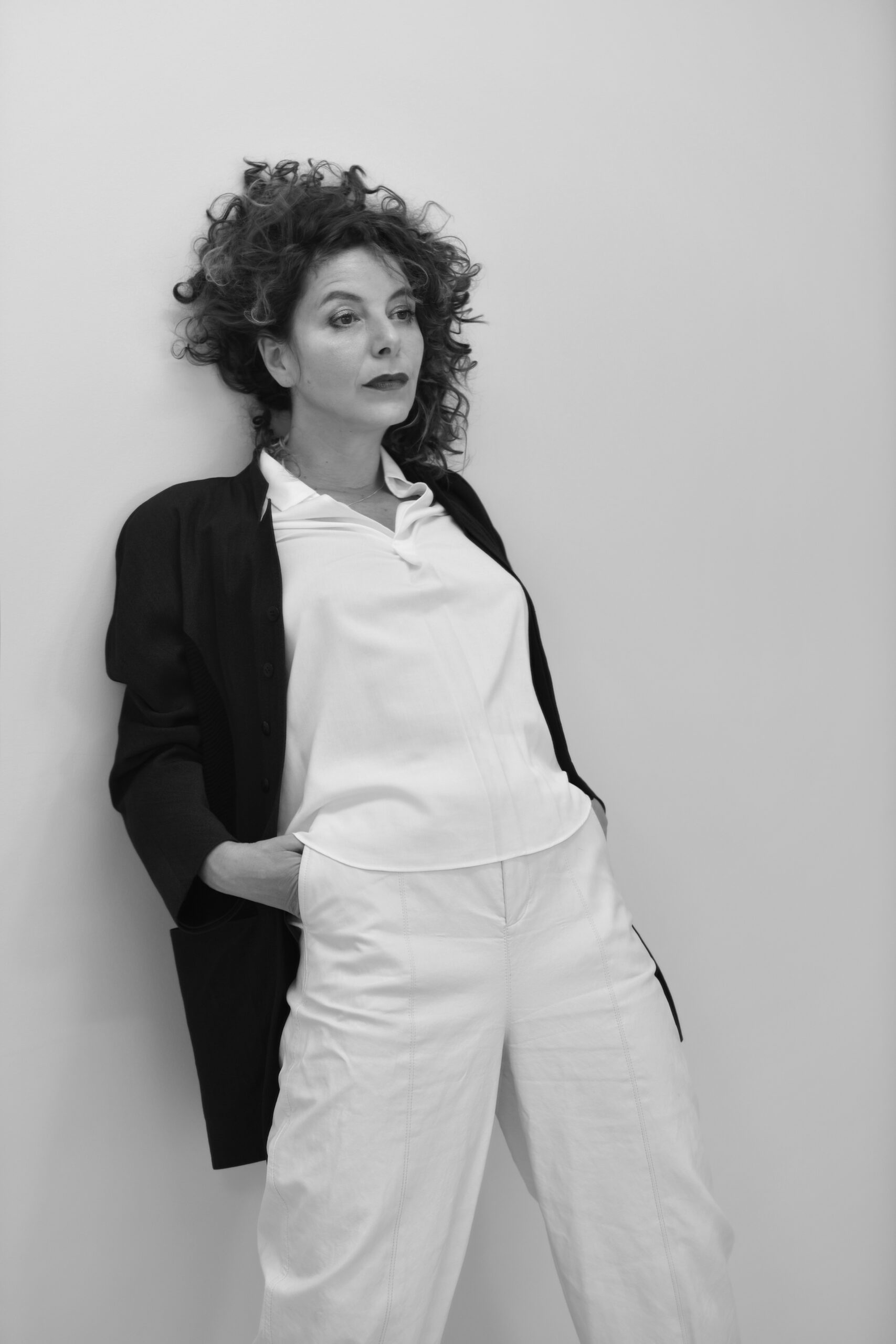“Aesthetic imagination as a transformative force.”
In their groundbreaking Queer adaptation of The Bacchae, for Holland Festival
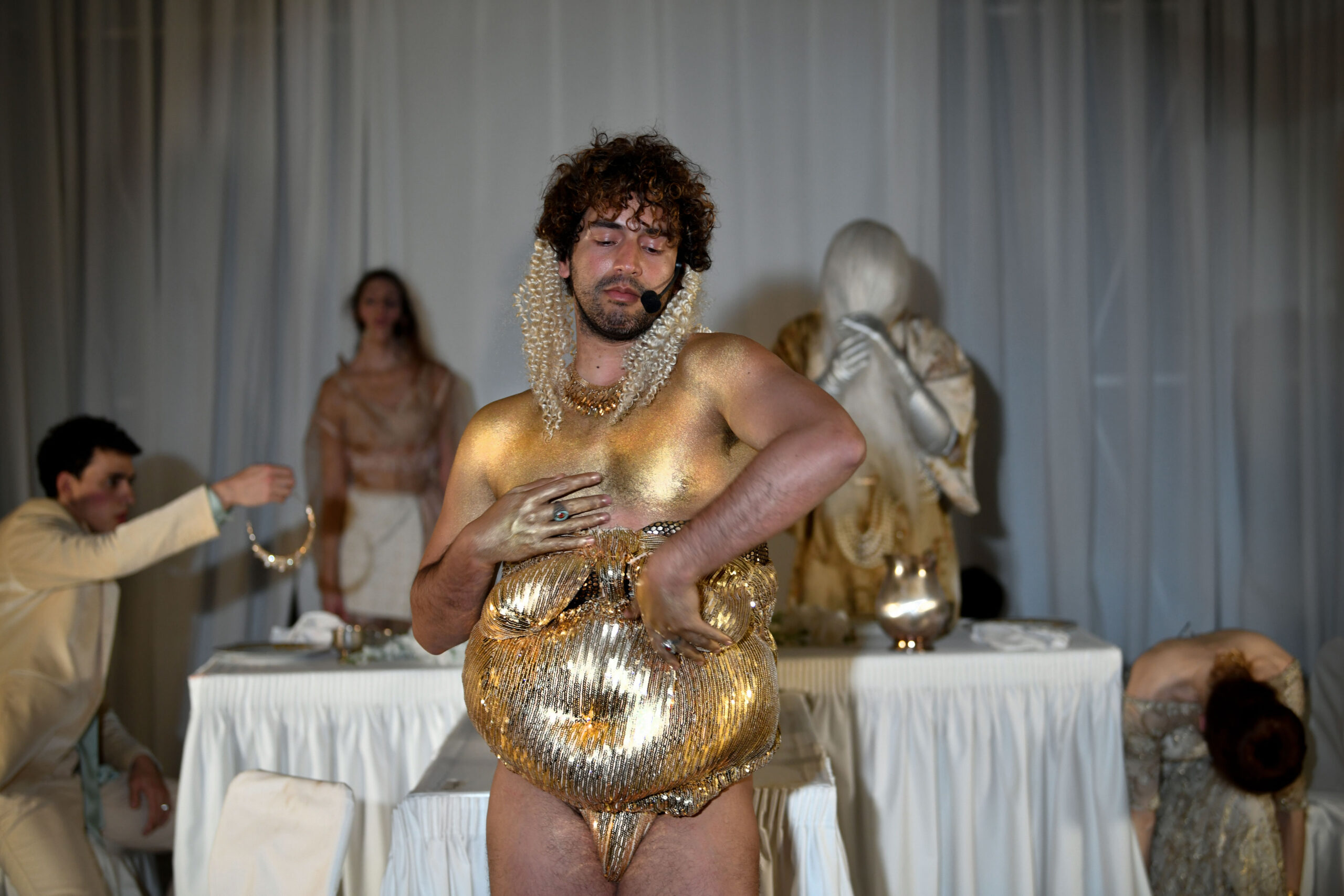
Alex Kat
The Holland Festival never disappoints, and this year’s exceptional line-up has stolen our hearts. One of our personal highlights is the The Bacchae by Elli Papakonstantinou, which subverts the classic story of Dionysus – the god of wine, pleasure, and dance – under a free-spirited and zealous lens. Described as ‘a Greek tragedy in the metaverse’, the show is promising a multi-sensory theatrical journey to confront us with questions of what freedom means today. Within the extravaganza, Papakonstantinou proposes desire as a form of liberation and Queerness as a global framework to experience a world with no borders or divisions. Fascinated by the vision, we caught up with the artist to learn more about the concept behind the piece, her process and innovative approaches to performance.
Hey, great to be in touch! Let’s begin with what first inspired you to create a new re-adaption of Euripides’ The Bacchae.
I recently spent a long period in Stockholm commissioned by the Royal Theatre of Sweden, and there I had the chance to observe how regularised relationships played in a “meta” me-too society. It got me thinking. Even in Sweden, where so much progress has been achieved, this canonisation of human relationships creates a kind of new system that aims (again) to regulate desire. I am looking at a feminine future in all its openness and Queerness as a different system of thinking, a system that affirms perplexity, and most of all, uncertainty and ambiguity. I started thinking of the myth of Dionysus who overturns the patriarchal system by revealing the perplexity of desire and connecting us with the deep forces of nature. And then I thought how that would play in today’s world. We talk so much about freedoms, but how much in the becoming of ourselves, how much in real movement are we? I wanted to move beyond any given roles. With these questions in mind, I worked on a text that opens questions rather than answers.
The original Bacchae explores the themes of divine ecstasy, religious frenzy, gender roles, and the consequences of denying or resisting the power of the gods. What initially connected you to this work and were there any moments along the way which reaffirmed this connection?
Ambivalence, uncertainty, ambiguity. These are the new ideas that my Queer Dionysus brings to the world. Language fails Agave and the Bacchae; the characters live in a perplex reality, in search of other words, of another way. Divine ecstasy is present anytime we reach out to our soul, reaching out to ourselves. What connected me to the work was the belief that I am divine, and that to fulfil myself means to reconnect with the deep nature of things against the fabricated scar of the patriarchy. The scar of division and duality/ binary. I am not this or that – I can be all these (animals, things, genders etc) at the same time.
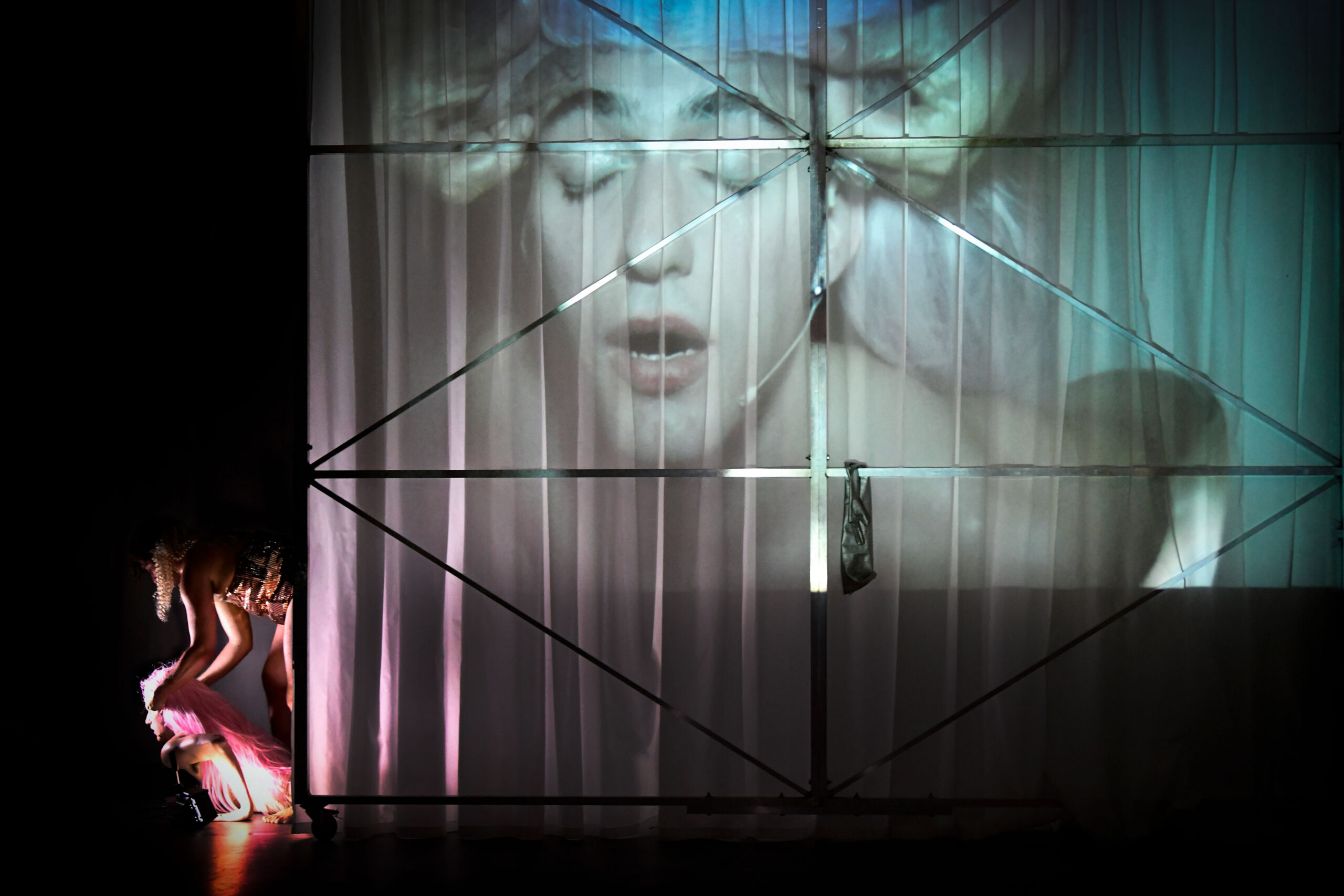
Alex Kat
There is a mixture of languages on all levels (also literally). This idea of search for a new, more fluid language is at the heart of the piece.
It is a Queerness that can take all forms without really worrying to converge into one main expression. This is a piece about liveliness, about being being alive!
Described online as “a musical Queer version”, how would you discuss this process, of adapting something into a Queer mode of expression?
I want to create a strong visual world that addresses gender fluidity in context and aesthetics. How are we always already “singular-plural”. I knit together different means of expression bringing in dialogue a kitsch expression with a “high art” classical opera; I want to destroy the fixed notions and categories of separation inherent to capitalism through the aesthetics of a transformative mode of history and time, through the aesthetic imagination as a transformative force.
Playing with concepts of self-expression, and identity, alongside fear, what would you describe as the pillars of the performance?
This piece is an invitation to leave behind the fears and anxieties that prevent us from fully expressing ourselves. In a world where social media and technology allow us to present curated versions of ourselves to the world, the pressure to conform to certain societal norms and expectations can be overwhelming. I wish to speak to the universal human experience of feeling vulnerable and uncertain.
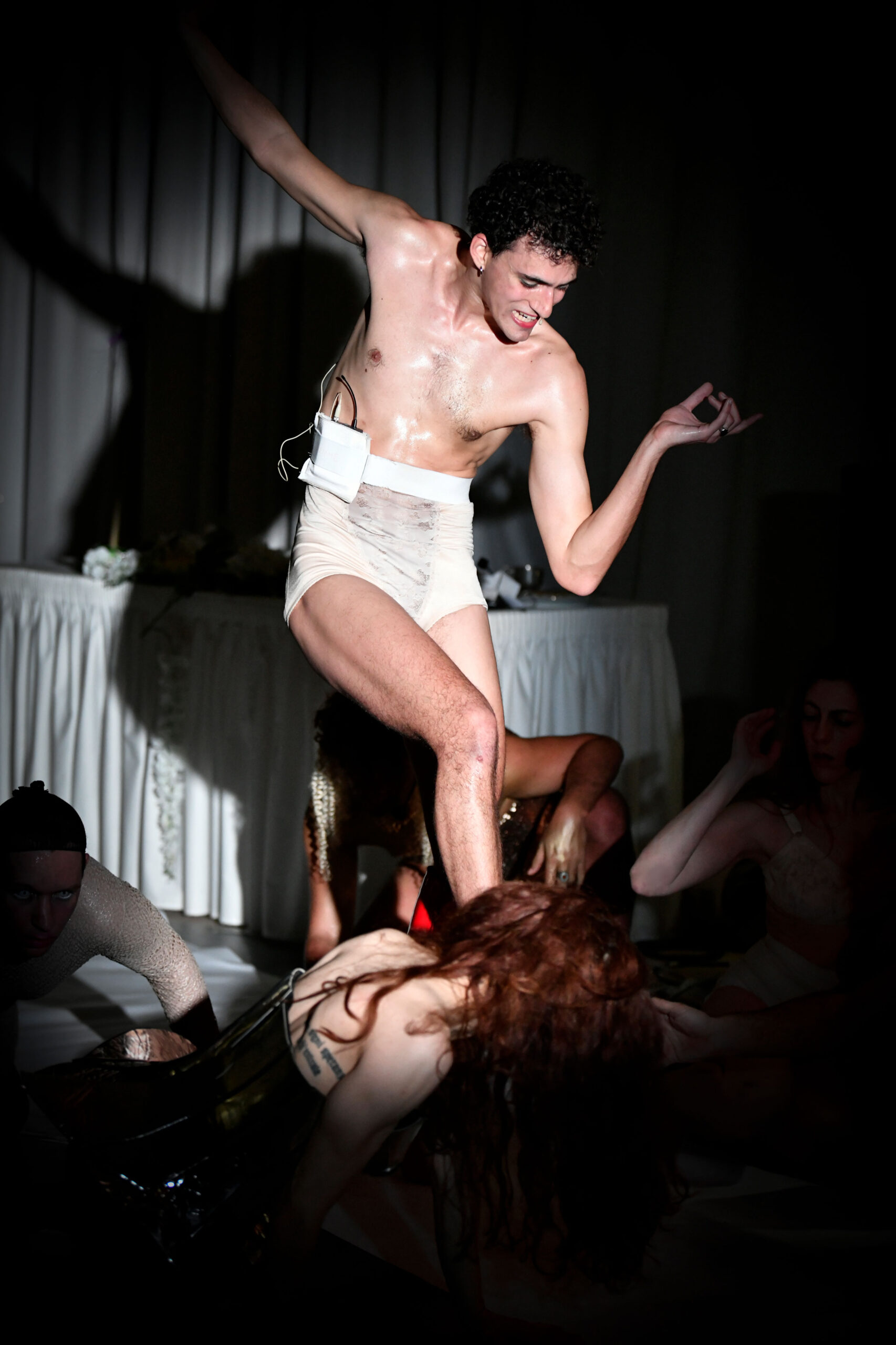
Alex Kat
Within this re-adaption, you work with many amazing talents. Can you talk me through this coming together of creative minds? And what this looked like practically, when putting together the piece…
Yes indeed! I feel so blessed and I am learning all the way from these wonderful artists of variant backgrounds who carry with them unique perspectives, skills, and experiences that can help to elevate the work to new heights. During the preparation of the piece it was so amazing to see how they pushed each other to think outside the box, challenge assumptions, and explore new creative possibilities. There is also a sense of camaraderie and shared purpose which can be invaluable in an industry that can often be competitive and isolating. Diversity is at the heart of this team. Working with the French choreographers Sinequanon (Jonathan Pranlas-Descours and Christophe Beranger) was revealing as they managed to move us deep into the matter of the body. The core of the material world is the body. If this piece is visceral, it’s thanks to their creative input. I met Ariah Lester some few years ago, as we were both presenting work at the O. Festival in Rotterdam. I was stunned by his presence and his music skills. His musical compositions give a dark twist to pop music and really fly us to the moon as he embodies some of the qualities of Dionysus: freedom, Queerness and love.
The music is a key point within Bacchae! Described as an “interactive sound design”, could you talk me through this concept some more?
Music and light (video) scenography are essential to my work along with a research on new technologies. In the Bacchae we developed a sonic interactive vibrational device (designed by Yannis Papoutsis). That vibrational device which is based on a geophone technology, translates vibration into sound and visuals (taking the shape of a 2m high seismograph). I was looking for a way to converge the immaterial and untraceable into something visible and audible. A sonic sculpt. It is, of course, a metaphor for the divine, also an imprint of the Big Machine. Ariah Lester composes the songs and music for the Bacchae and Lambros Pigounis did the live interactive sound environments. The two stay in dialogue throughout the show.
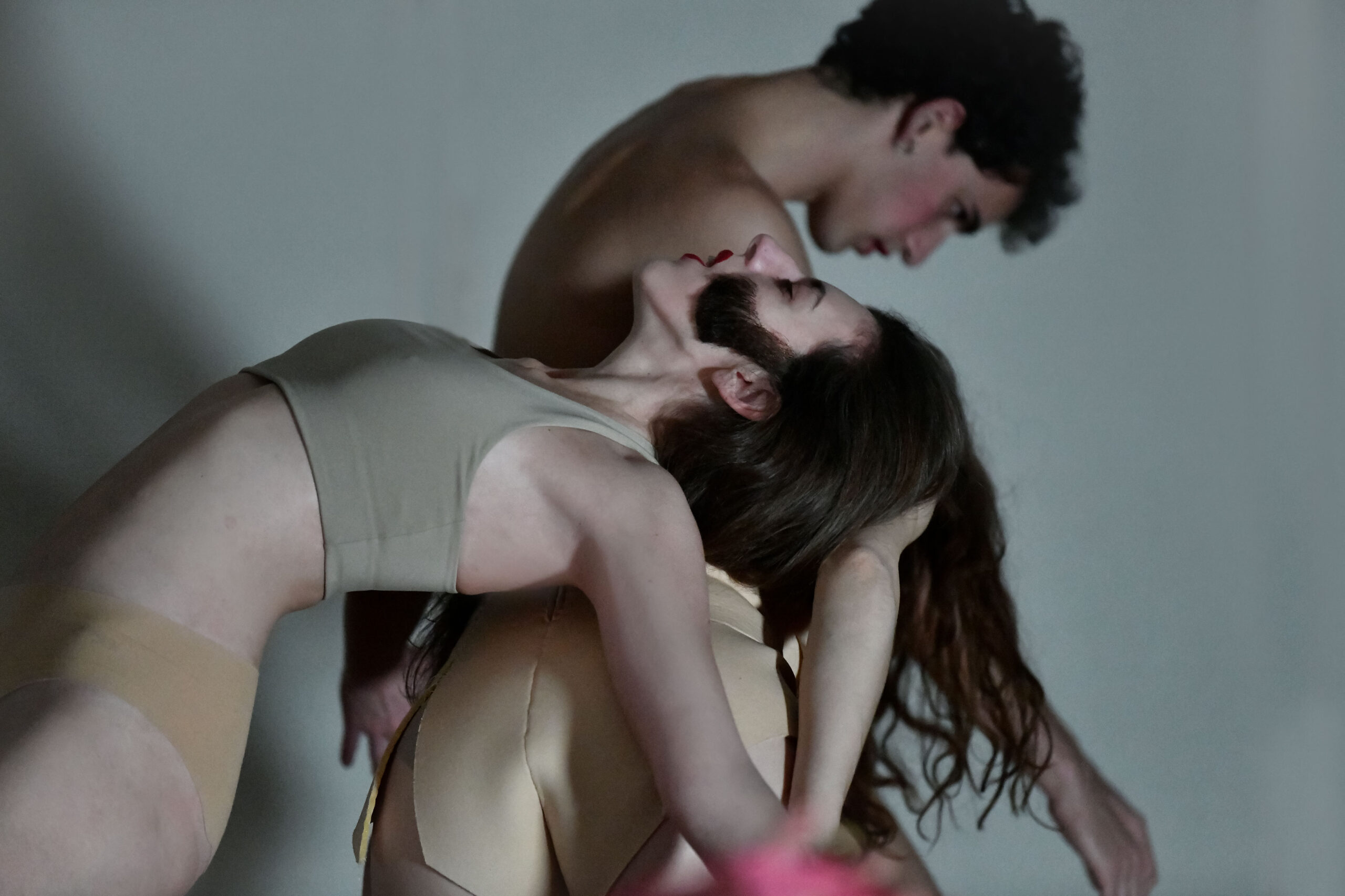
And, within this musical sound design, how do you hope this further connects with the audience experience?
Music sets the emotions in a vortex movement, and my intention was that all stage elements spin around music and sound that moves everything. What a joyful apocalypse life is: “before this I was born once a boy, and a maiden, and a plant, and a bird, and a darting fish in the sea” (Parmenides).
How did your relationship with Holland Festival first come to fruition?
It developed throughout the years, as I visited the Festival and the programming director attended my works in many different occasions. I can say that there has been a very profound trust built over the last years. So, I am very honoured and excited that this dialogue takes off!
And why do you think it is important to showcase this piece within the context of the Holland Festival?
Holland Festival stands at the forefront of the avant-garde European scene. I love its wide spectrum of artistic production and I have a strong sensation that I share a common experimental drive with other artists that present their work in this edition. There’s curatorial care to initiate further interconnections between artists and thinkers. This is so great. The Elder Project, for example, is an awesome platform, and I admire Claron McFadden. So cool.
What other performances, shows, pieces are you looking forward to seeing within the programme?
I will see Idra’s Net. I am a great fan of Meredith Monk and ANOHNI. I will also see Respublika by Lukasz Twarkowski and there is so much more. I wish I could stay in Amsterdam longer, but the Bacchae continues its tour at the Festival de Marseille (France), so I have to go.
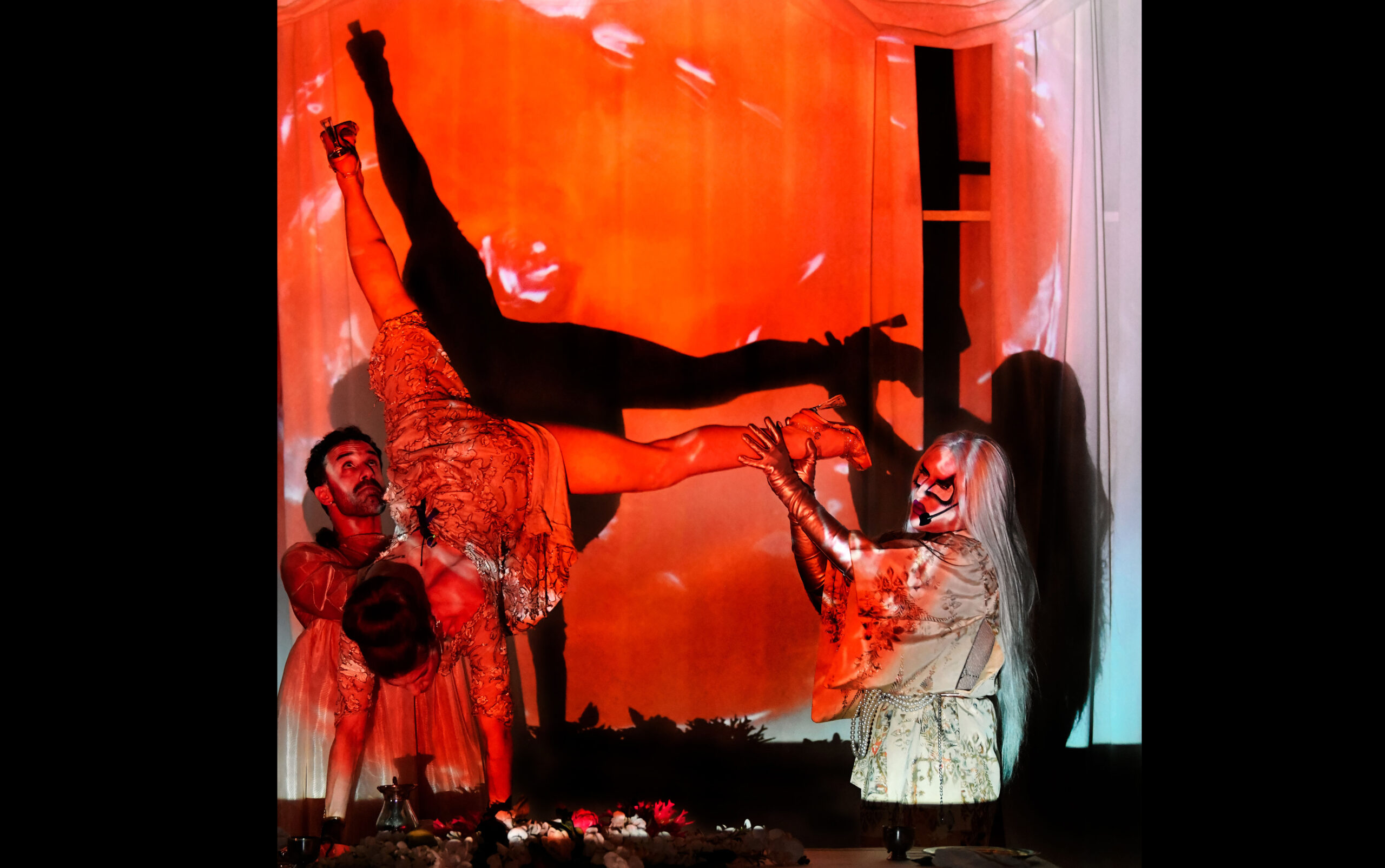
Images courtesy of Holland Festival
On show from 10 t/m 11 juni 2023
Piet Heinkade 1, 1019 BR Amsterdam
Tickets here!
